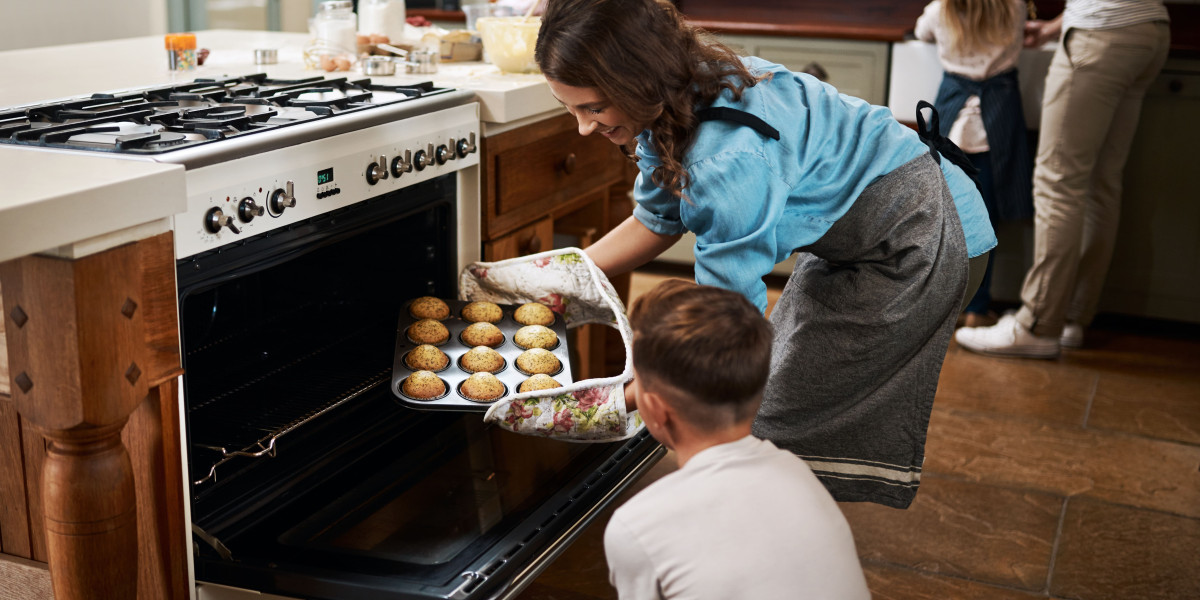
Understanding Built-in Ovens and Hobs: The Perfect Kitchen Combination
As modern kitchen areas progress, Hisense Built-in Electric Single Oven - Black appliances are ending up being progressively popular for both performance and aesthetics. Amongst these appliances, built-in ovens and hobs stick out as important elements for any cooking lover or home cook. This article explores the benefits, functions, and factors to consider surrounding built-in ovens and hobs. It likewise addresses typical questions, using a detailed guide to these kitchen essentials.
What are Built-in Ovens and Hobs?
Built-in ovens are integrated into kitchen cabinetry, creating a streamlined, smooth look. They come in various types, consisting of conventional, convection, and steam bulit-in ovens, each catering to different cooking methods. Hobs, on the other hand, are the cooking surfaces that incorporate with the kitchen countertop. They can be gas, electric, or induction, allowing cooks to pick based upon their cooking design and energy preference.
Advantages of Built-in Ovens and Hobs
- Space-Saving: Built-in designs maximize kitchen area by getting rid of the need for freestanding units, producing an open and airy environment.
- Aesthetic Appeal: Their smooth style adds to a modern, structured look in the kitchen.
- Improved Functionality: Built-in ovens often come with advanced cooking technology, providing a range of features like self-cleaning and smart controls.
- Personalization: Manufacturers provide a range of finishes and styles, permitting homeowners to customize their appliances to match their kitchen design.
Types of Built-in Ovens
1. Conventional Ovens
Traditional ovens use convected heat from the bottom and can be ideal for baking.
2. Convection Ovens
Convection ovens have a fan that circulates hot air, ensuring even cooking. They minimize cooking time and are perfect for roasting meats or vegetables.
3. Steam Ovens
Steam ovens utilize damp heat to prepare food, preserving nutrients and flavors. They are ending up being progressively popular amongst health-conscious cooks.
4. Microwave Ovens
These ovens offer fast heating and cooking and serve different functions, from reheating leftovers to baking.
Types of Hobs
1. Gas Hobs
Gas hobs use natural gas or propane for cooking. They supply instantaneous heat control, making them a preferred amongst professional chefs.
2. Electric Hobs
Electric hobs have solid or ceramic surface areas that heat up by means of electric coils. They are easy to tidy however might take longer to heat than gas models.
3. Induction Hobs
Induction hobs use electromagnetic energy to straight warm pots and pans, offering quick heating and energy performance. They cool down quickly and provide a safer cooking experience.
Factors to Consider When Choosing Built-in Ovens and Hobs
When picking built-in ovens and hobs, several elements should be thought about:
1. Area Limitations
Measure the available space in your kitchen to ensure that the appliances will fit seamlessly into the cabinets.
2. Cooking Style
Consider your cooking practices. If you regularly bake, a convection oven might be ideal. On the other hand, induction hobs are excellent for safety and effectiveness.
3. Budget plan
Rates varies substantially based on functions and brand names. Setting a budget assists limit the choices.
4. Energy Source
Identify whether you desire gas or electric appliances. This decision can affect cooking efficiency and energy expenses.
5. Visual appeals
Choose surfaces and designs that complement your kitchen's style. Bosch Stainless Steel Built-In Electric Oven-steel is a popular choice for a contemporary appeal.
Contrast of Built-in Ovens and Hobs
| Feature | Built-in Oven | Built-in Hob |
|---|---|---|
| Type | Convection, steam, and so on. | Gas, electric, induction |
| Cooking Versatility | High | Moderate to high |
| Cleaning up Ease | Differs by design | Generally easy to clean |
| Installation Style | Integrated in cabinets | Flush with counter top |
| Energy Efficiency | Differs by model | Induction typically most effective |
Frequently Asked Questions About Built-in Ovens and Hobs
1. Are built-in ovens more costly than freestanding models?
Yes, built-in ovens usually come with a higher price due to their style and setup requirements. However, www.Ovensandhobs.Uk they frequently offer advanced functions.
2. Can I replace my existing freestanding oven with a built-in design?
Yes, it's possible to replace a freestanding oven with a built-in design, but you may require to make changes to your kitchen cabinetry and kitchen design.
3. What upkeep do built-in ovens and hobs require?
Routine cleansing is important. Many built-in ovens come with self-cleaning functions. It's also important to keep the hobs without spills and grease.
4. Are induction hobs safe for households?
Induction hobs are thought about much safer than gas or electric choices because they just heat up the cookware, minimizing the threat of burns or mishaps.
5. How can I make the most of the efficiency of my built-in oven and hob?
To take full advantage of effectiveness, always preheat the oven when required, utilize the right size pots or pans on the hob, and think about using the residual heat from your hob after cooking.
built in electric oven and hob-in ovens and hobs offer various advantages, making them popular options for modern kitchen areas. Their space-saving styles, advanced functions, and visual appeal contribute to their high need. By considering aspects like space, cooking design, and budget plan, property owners can choose the ideal combination of appliances that best match their cooking needs. Whether through gas, electric, or induction hobs, and a variety of oven types, the best built-in kitchen appliances can improve the cooking experience while raising the general aesthetic of the kitchen.







